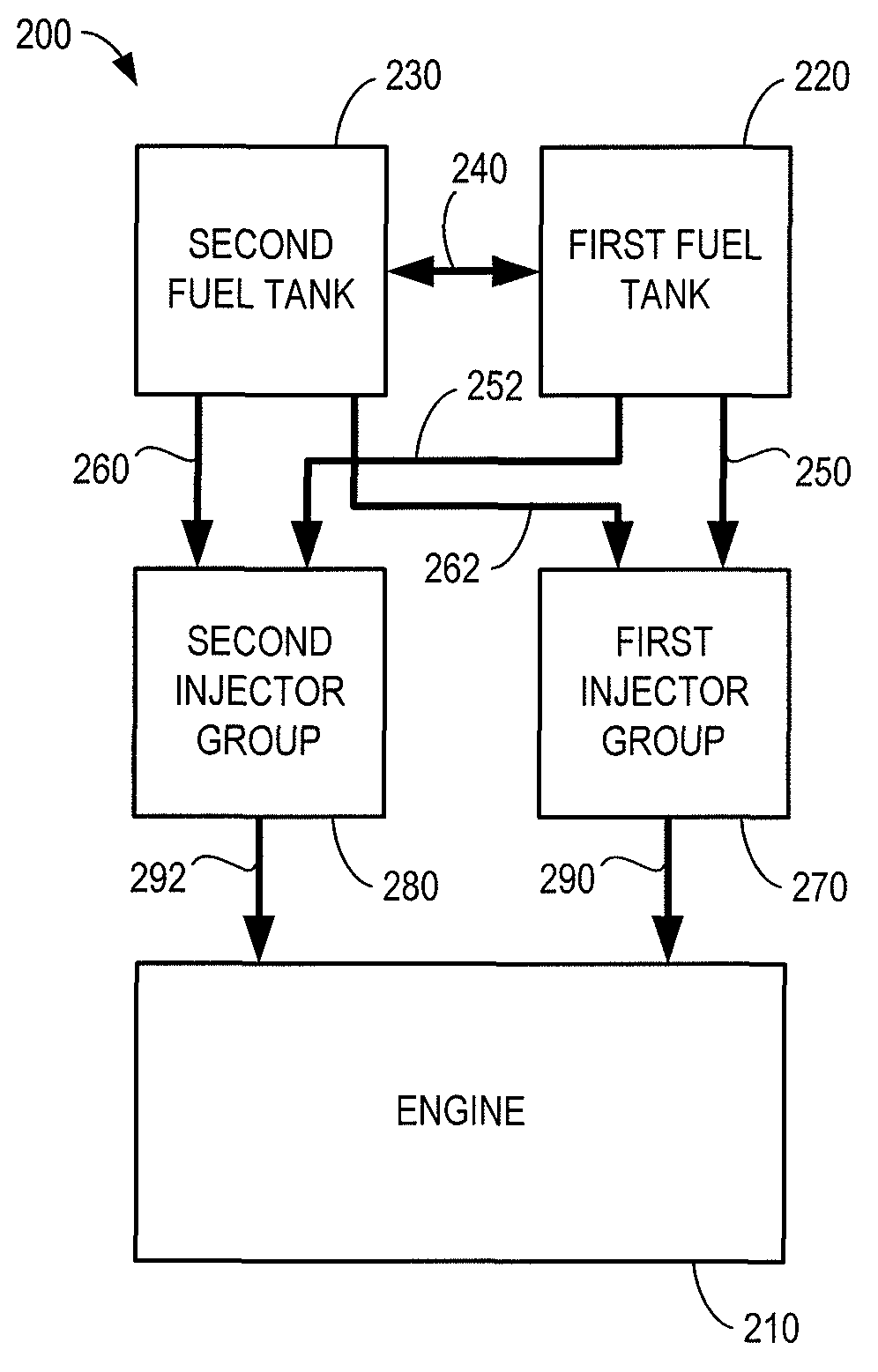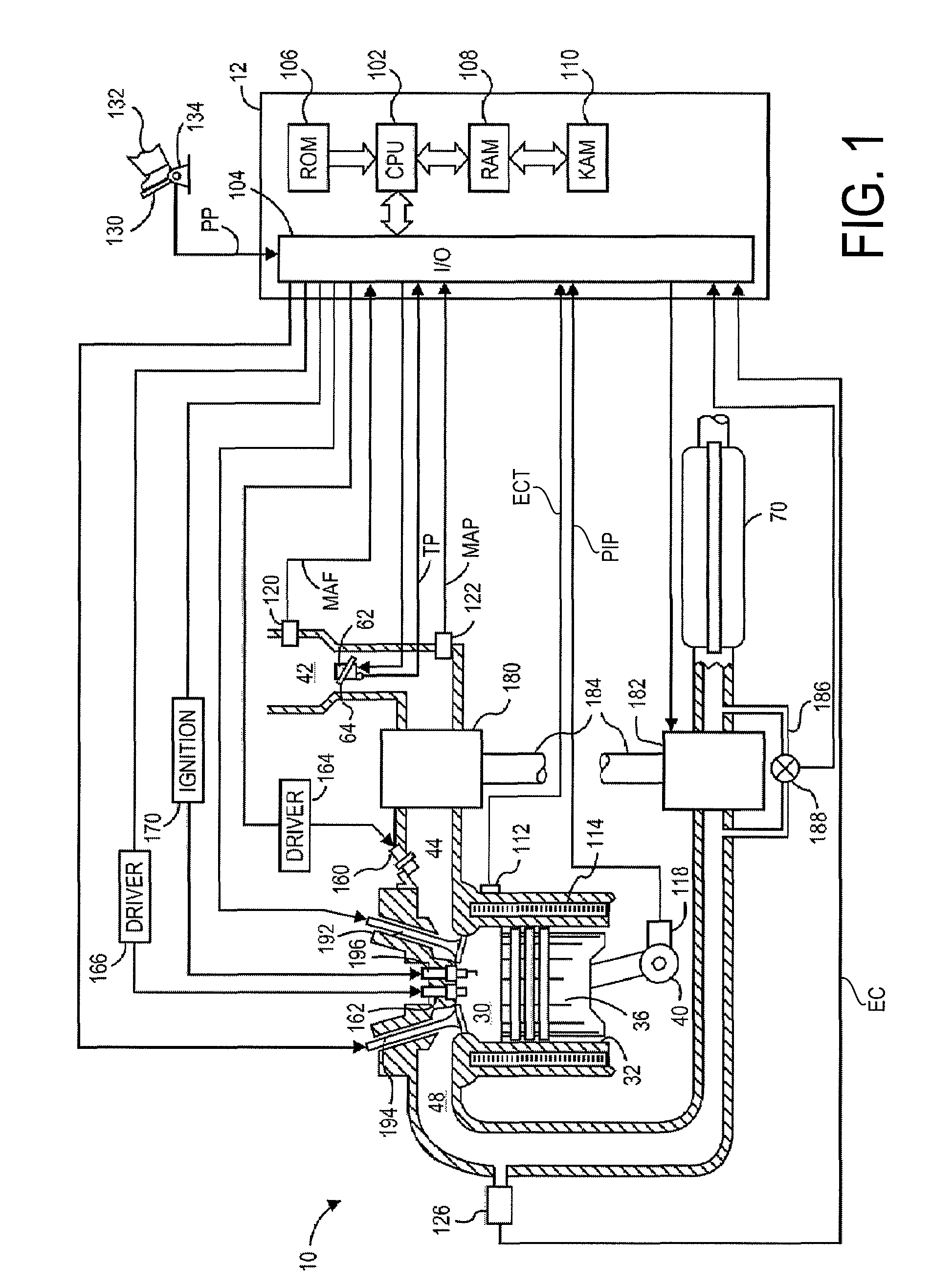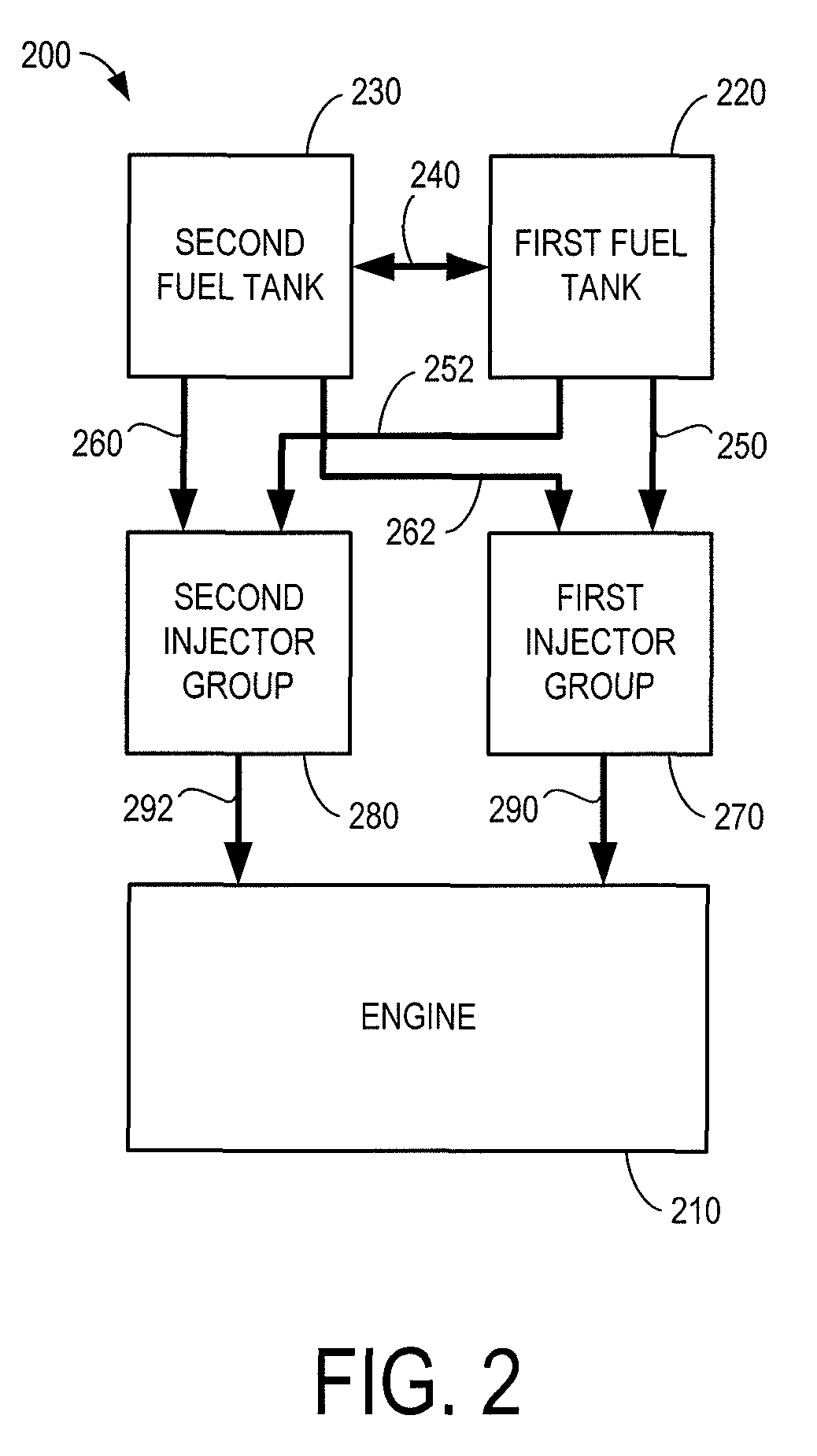Engine boost control for multi-fuel engine
a multi-fuel engine and boost control technology, applied in the direction of electrical control, process and machine control, etc., can solve the problems of reducing the available boost, reducing the engine output torque, and reducing the charge cooling effect of direct injection, so as to reduce the amount of reduction, operate with a greater amount of boost, and reduce the effect of heat vaporization
- Summary
- Abstract
- Description
- Claims
- Application Information
AI Technical Summary
Benefits of technology
Problems solved by technology
Method used
Image
Examples
Embodiment Construction
[0018]The following disclosure presents a fuel delivery system that may be configured to deliver one or more different fuels to a fuel burning engine. These fuels may include liquid fuels, gaseous fuels, or combinations of liquid and gaseous fuels. In some embodiments, the fuel burning engine may form an engine system of a vehicle, including vehicles powered exclusively by fuel and hybrid electric vehicles (HEV), among others. While a fuel burning engine is described in the context of an internal combustion engine for a vehicle, it should be appreciated that the various fuel delivery approaches described herein are not limited to the disclosed engine configurations or applications, but may be used in other suitable configurations or applications where appropriate.
[0019]In some embodiments, a fuel delivery system may be operated to deliver to an engine, two or more fuels having different fuel compositions from two or more different fuel sources. As a non-limiting example, a first fue...
PUM
 Login to View More
Login to View More Abstract
Description
Claims
Application Information
 Login to View More
Login to View More - R&D
- Intellectual Property
- Life Sciences
- Materials
- Tech Scout
- Unparalleled Data Quality
- Higher Quality Content
- 60% Fewer Hallucinations
Browse by: Latest US Patents, China's latest patents, Technical Efficacy Thesaurus, Application Domain, Technology Topic, Popular Technical Reports.
© 2025 PatSnap. All rights reserved.Legal|Privacy policy|Modern Slavery Act Transparency Statement|Sitemap|About US| Contact US: help@patsnap.com



